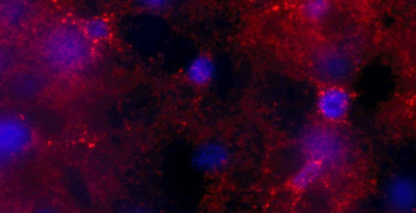
Chemogenetically activated astrocytes in the nucleus accumbens.
The Systems and Behavioral Neuroscience group includes students and faculty from diverse fields whose fundamental goal is to understand the biological basis of behavior. This multidisciplinary group shares common interests in the neurobiology of monoamine systems, peptide transmitters and psychostimulant drug actions. Ongoing research projects employ an array of sophisticated neurochemical, electrophysiological, computational, imaging, neuroanatomical and behavioral assays to investigate the mechanisms underlying normal brain function as well as neurological, neurodegenerative and psychiatric disorders.